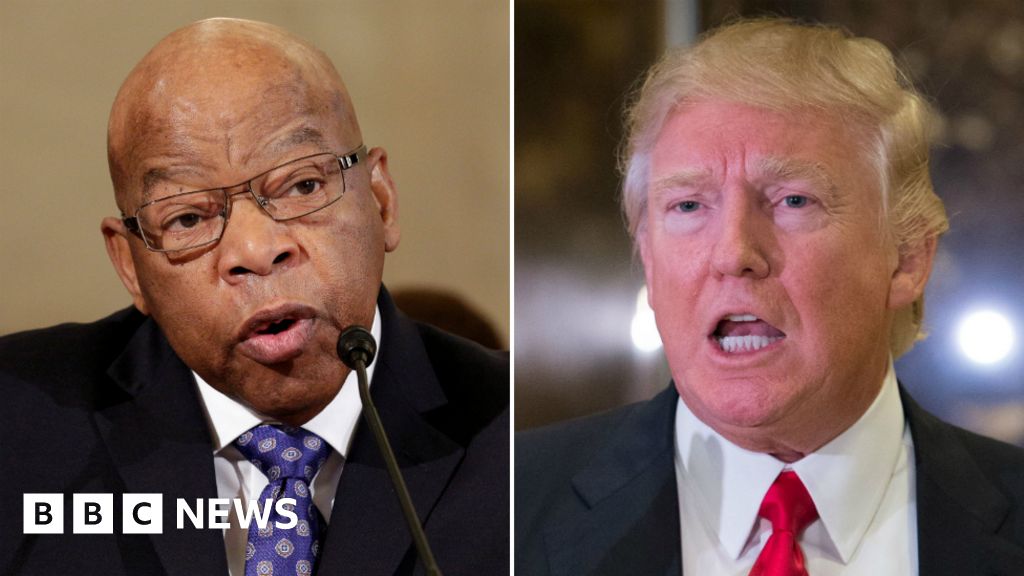Trump's NI Boycott Ignorance: Details You Need To Know
Did a significant diplomatic snub go unnoticed in the heart of Washington D.C.? Former U.S. President Donald Trump seemingly remained oblivious to a boycott by some Northern Irish political leaders during the White House St. Patrick's Day celebrations.
The annual St. Patrick's Day festivities at the White House, a cherished tradition fostering transatlantic ties, took an unexpected turn this year. While the Irish Taoiseach (Prime Minister) was hosted, and the usual celebrations proceeded, a notable absence was felt by some. Several political parties from Northern Ireland opted to boycott the event, a decision that, according to the former President himself, seemingly escaped his notice. News of this revelation surfaced on March 12, 2025, at 6:22 PM GMT, highlighting a potential disconnect between the political landscape in Northern Ireland and the former President's awareness.
The core issue revolved around the attendance of specific Northern Irish political factions. Specifically, Sinn Fin, the Alliance Party, and the Social Democratic and Labour Party (SDLP) chose not to participate in the Washington D.C. celebrations. The SDLP, in particular, publicly stated their reason for the boycott, citing the former President's stance on the situation in Gaza as a key factor. This absence, however, did not appear to register with the former President, who, while hosting the Irish Taoiseach, seemingly remained unaware of the diplomatic gesture.
During the customary St. Patrick's Day visit to the Oval Office, the former President, alongside Irish Premier Michel Martin, made a series of remarks. In an interesting turn, he stated his belief that Ireland was, of course, taking advantage of the U.S. Furthermore, he commented on the European Union, stating, "the EU was set up in order to take advantage of the united states." These comments, while perhaps typical of the former President's rhetoric, added an extra layer to the already complex dynamics of the day.
Gavin Robinson, a prominent figure, commented on the situation, expressing that the former President's unawareness of the boycott was, "revealing." He noted this while the former President was welcoming his "new friends from Northern Ireland." This suggests a potential divergence in priorities and a lack of close attention to the nuances of Northern Irish political sensitivities. The deputy first minister, however, indicated that the former President took a significant interest in Northern Ireland during engagements with politicians in Washington.
Michelle O'Neill, a key figure, acknowledged the situation, stating that the matter, "is a matter for Michelle ONeill and Sinn Fein". She emphasized the importance of her presence at the celebrations, adding, I think its incredibly important for me to be here. We get unparalleled levels of access. This quote highlights the different perspective and potential benefits for those who did choose to attend the White House festivities.
The White House St. Patrick's Day celebrations are typically seen as an important opportunity to strengthen the relationship between the United States, the Republic of Ireland, and, by extension, Northern Ireland. The absence of key political players from Northern Ireland, coupled with the former President's apparent lack of awareness, raises questions about the effectiveness of this diplomatic event and the attention given to the sensitivities of all parties involved. The situation underscores the complexities of international relations and the importance of considering all voices within a multifaceted political landscape.
Here is a table summarizing key information about the political parties involved in the boycott:
| Party | Leader(s) at Time of Event (March 2025) | Primary Political Position/Ideology | Reason for Boycott (as stated publicly) |
|---|---|---|---|
| Sinn Fin | Michelle O'Neill | Irish republicanism, left-wing, democratic socialism | While a reason wasn't stated publicly by the party, the decision to boycott aligns with their broader concerns about the former President's policies. |
| Alliance Party | Naomi Long | Centrist, cross-community, liberal | Not publicly stated, but may be related to broader concerns. |
| Social Democratic and Labour Party (SDLP) | Colum Eastwood | Social democracy, Irish nationalism | Citing the former Presidents position on Gaza. |
Reference website for verification: BBC News (Example - Replace with an actual, relevant news source)
This event, occurring on March 12, 2025, highlighted the complex relationship between Northern Ireland, the United States, and the political views of those involved. The boycott, the reasoning behind it, and the response from both those attending and those who didn't, all provide a case study in diplomacy and the importance of political awareness.
The focus of the article has been on the St. Patricks Day celebrations, the boycott, and the potential reasons behind it. However, it is also important to briefly consider the economic context. The Trump family, known for its business interests, has a wide range of holdings. This, as mentioned in the original content, leads to a discussion about ethical purchasing and supporting various political views with one's consumer spending. This is a separate, albeit related, issue that is often discussed in tandem with political events.
The implications of this diplomatic slight extend beyond a simple snub. It touches on the ongoing political climate of Northern Ireland, the former President's priorities, and the broader connections between international relations and internal politics. The event, and the fallout from it, serve as a reminder of the importance of paying attention to political nuances.


